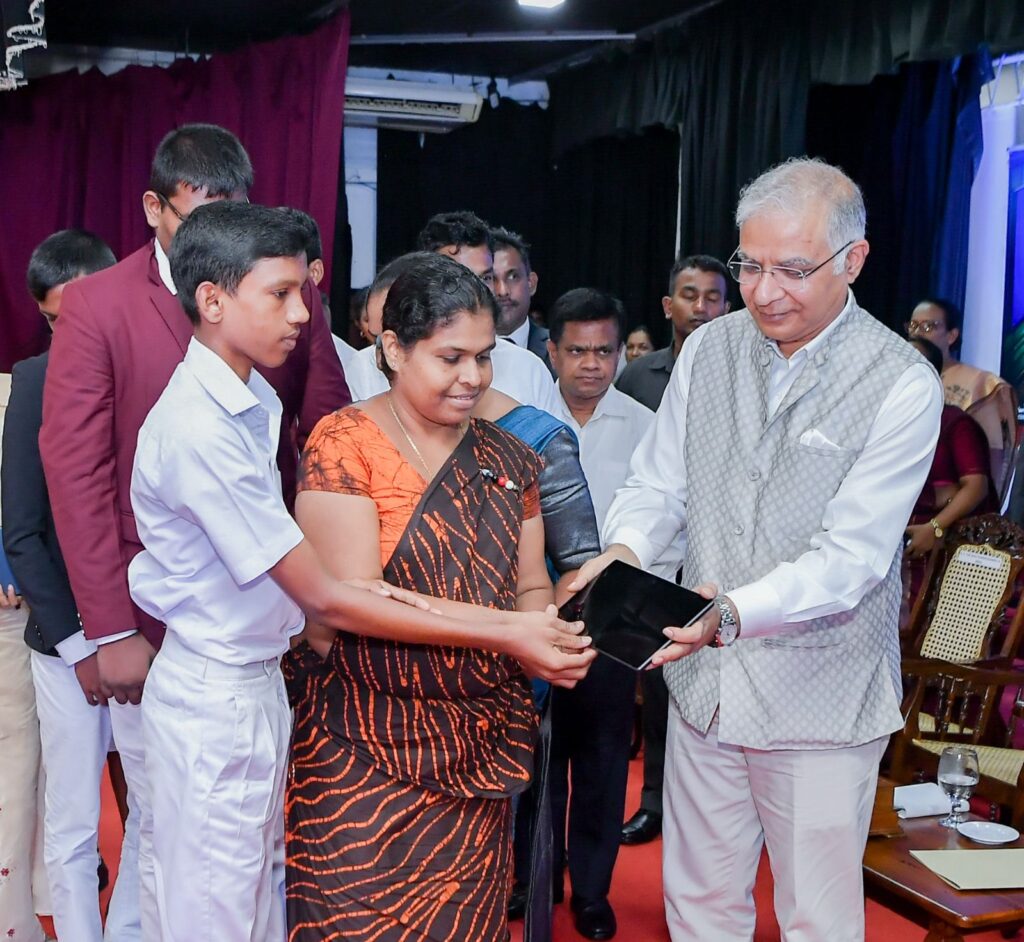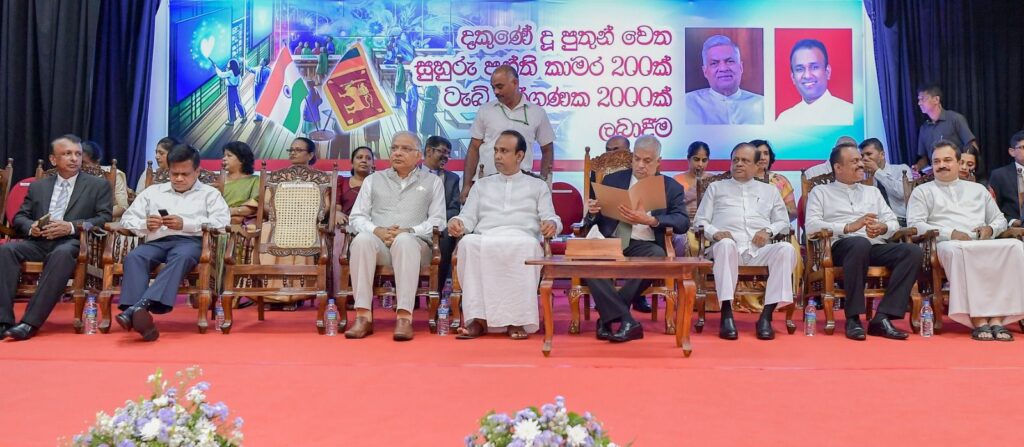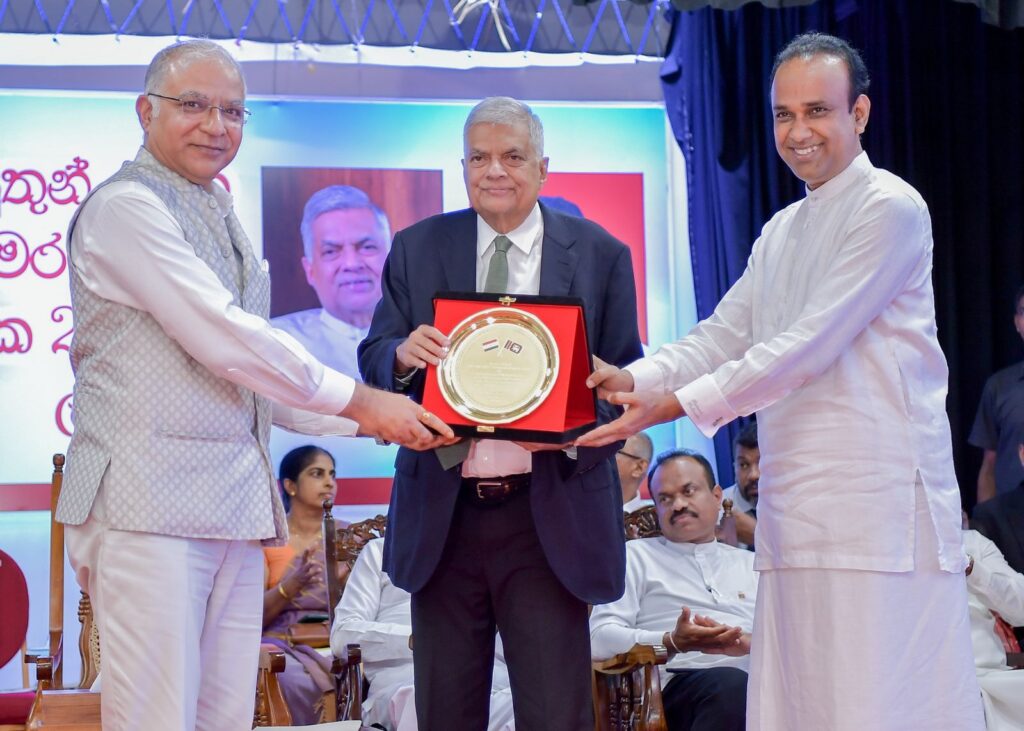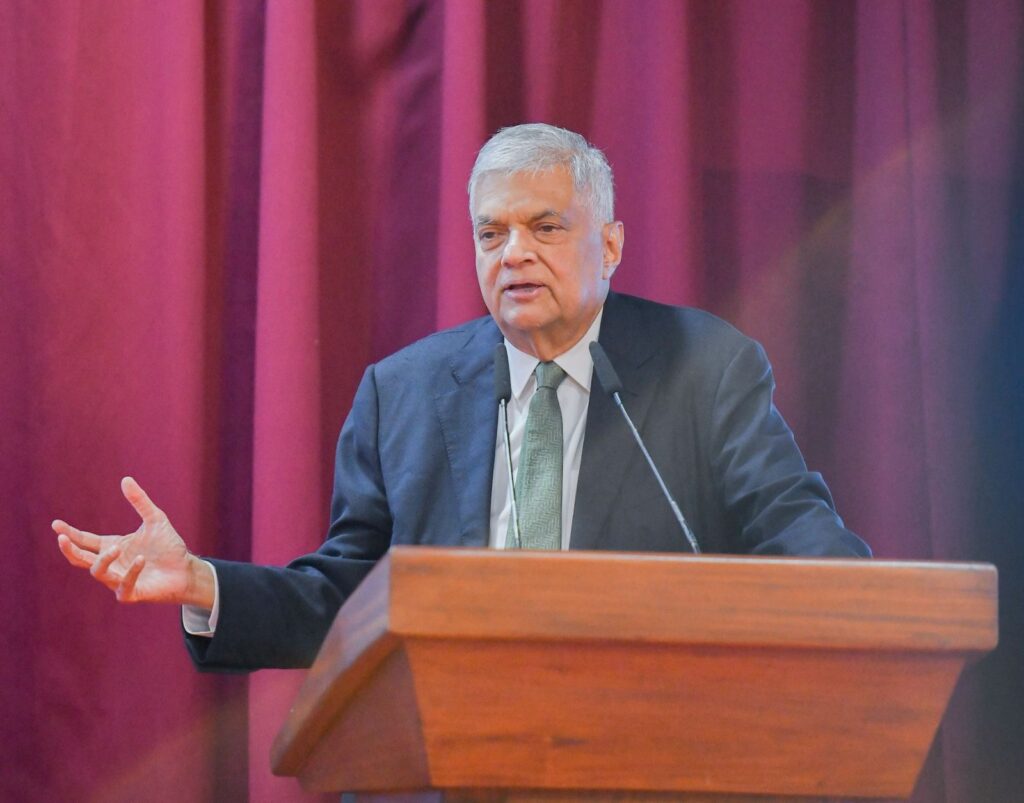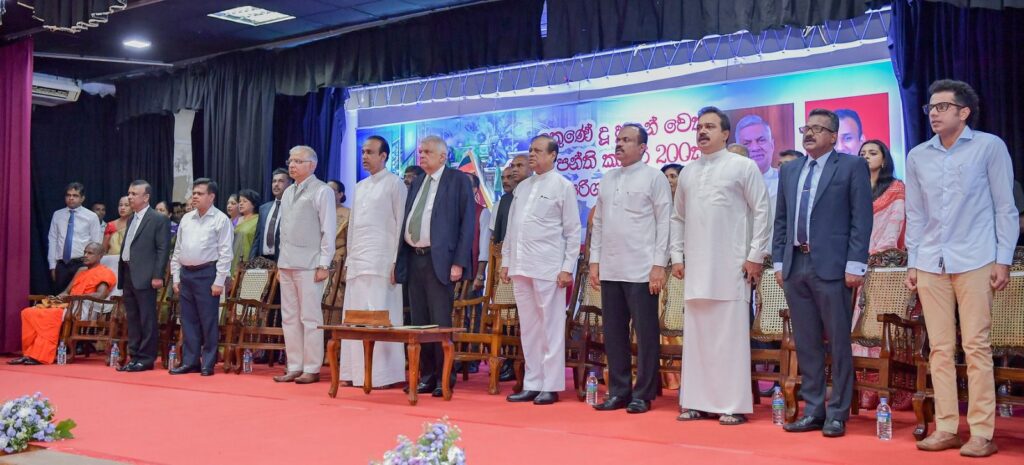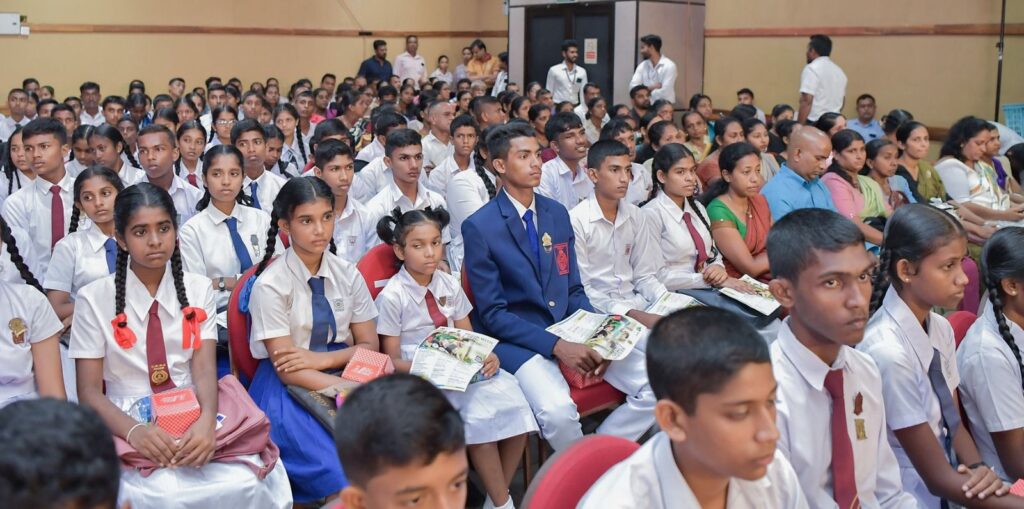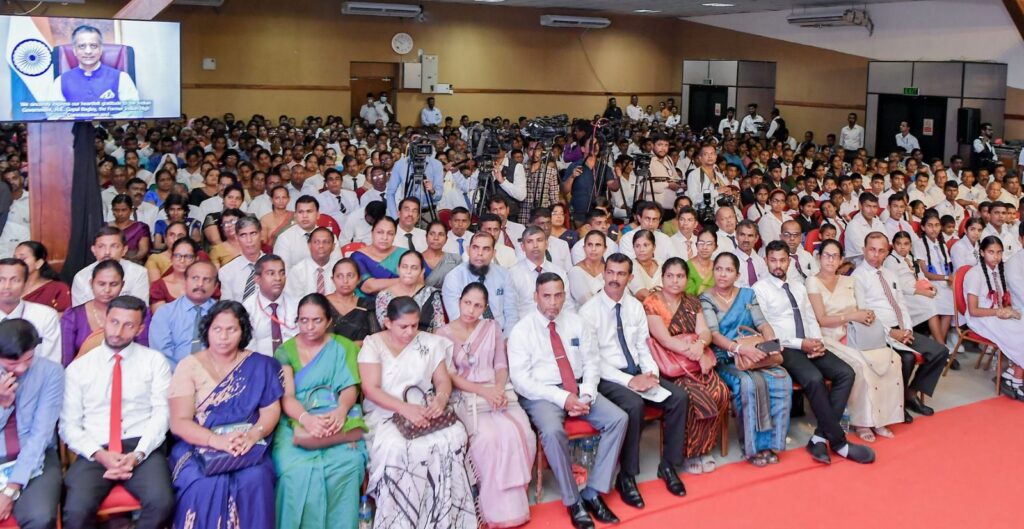By: Staff Writer
July 08, Colombo (LNW): The government has embarked on an educational reform initiative with the aim of introducing an advanced education system combined with modern technology to move the country forward with a new economy.
Thus far, Artificial Intelligence (AI) clubs have been set up in schools To ensure the sustainability of our newly launched AI program this year, it is essential for teachers to undergo comprehensive training.
The government is actively developing training programs and infrastructure to bolster this initiative. There is also a plan to elevate existing Central Colleges and National Schools into specialized institutions focusing on artificial intelligence.
This was disclosed by President Ranil Wickremesinghe when he addressed a ceremony organized in connection with the launching of an educational modernization programme by providing 200 Smart Classrooms and 2000 Tabs to 200 schools in the Southern Province recently.
The same initiative was launched in 2018 when the Present President was holding the Premiership of this country and it was halted amidst opposition and protests of the political parties at that time and the change of government.
In response to changing skills requirements, new and effective forms of e-learning are being adopted worldwide.
Sri Lanka has developed smart classrooms (SCs) in several schools across the country during the 2018-2019 period.
SCs consist of technology-related, educational components that facilitate interactive and stimulating learning environments in schools – moving away from the traditional method of teaching – including smart interactive whiteboards, classroom and multimedia control centres, computers and tablet personal computers (PCs), audio/video elements, and classroom management systems
A programme led by Sri Lanka’s Ministry of Education provided five desktop computers, five laptops, and one interactive smart board in each school, to be used among Grade 12 students. According to information provided by the Ministry’s Education for All branch, such equipment has been provided to 197 schools as of 2018, covering a similar share of schools from all provinces
If this initiative is allowed to continue, there will not be any space of any one to go around the country distributing smart boards to schools in rural areas trying to take undue political advantage, several senior education officers said.
They noted that the credit of introducing smart boards to schools should go to none other than President Ranil Wickremasighe.
Following a request by the Minister of Health and Industry, Dr. Ramesh Pathirana, the Government of India allocated RS. 300 million to the Southern Provincial Council for this new project.
Of the 200 schools selected schools, 150 are in the Galle district, while the remaining 50 schools are in the Hambantota and Matara districts.Additionally, 2000 Tabs were distributed, with each of the 200 classrooms receiving 10 tabs.
Moving forward, the schools will undergo digitization, with 1250 schools already being connected.President Wickremasinghe said.
Over the next three years, we aim to digitize 10,026 schools and provide necessary teacher training. Graduates with technical expertise from our universities enjoy 93% employment opportunities in the job market. We must seize the opportunity to lead globally through modern technology, he added…
Indian High Commissioner to Sri Lanka,. Santosh Jha said that as India’s neighbour, we consistently extend support to Sri Lanka. Sri Lanka holds a crucial position in our foreign policy. India remains steadfast in its commitment to providing essential infrastructure and technical knowledge support to Sri Lanka.

